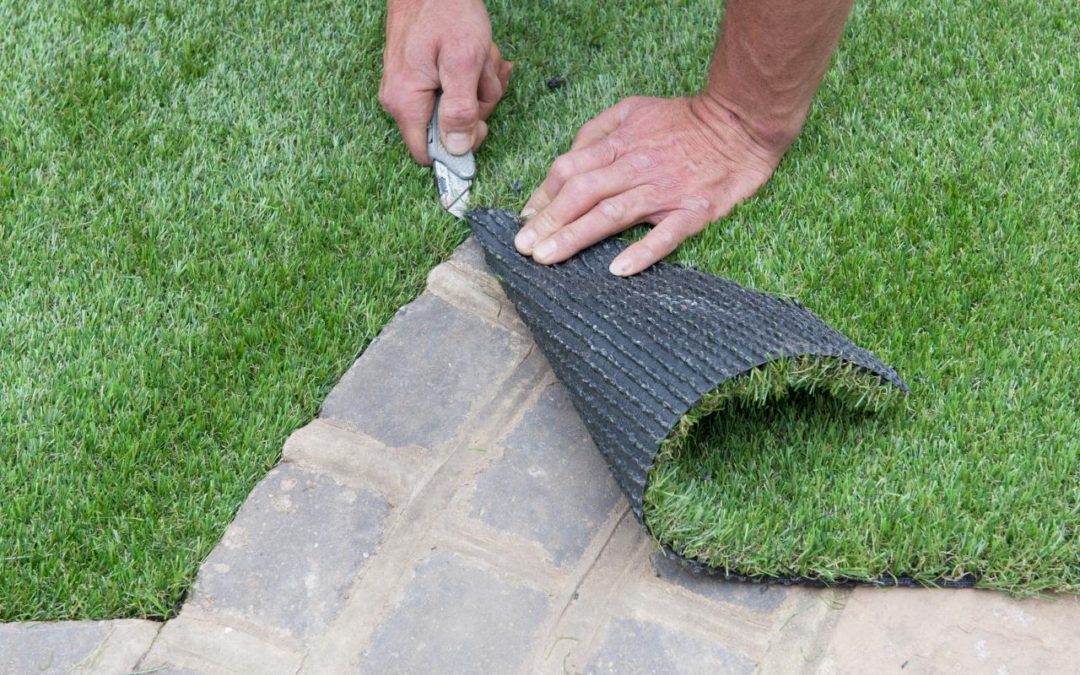What Are Safety Measures To Take While Installing Artificial Grass In El Cajon?
 Artificial grass, with its lush green appearance and minimal maintenance requirements, has become a popular choice for homeowners and businesses alike. While the installation of artificial grass may seem straightforward, it involves several steps that can pose safety risks if not handled properly. To ensure a safe and successful installation, here are five safety measures to consider.
Artificial grass, with its lush green appearance and minimal maintenance requirements, has become a popular choice for homeowners and businesses alike. While the installation of artificial grass may seem straightforward, it involves several steps that can pose safety risks if not handled properly. To ensure a safe and successful installation, here are five safety measures to consider.
- Before embarking on the installation process, equip yourself with the right safety gear. Gloves are essential to protect your hands from sharp tools and rough edges of the synthetic turf. Long pants and sleeves can prevent abrasions or cuts from the materials or the base surface. Safety goggles are crucial when cutting or nailing the grass into place to shield your eyes from flying particles.
- Whether using a carpet cutter, utility knife, or any other sharp tool, it’s vital to handle them with care. Always cut away from your body and keep blades properly sheathed when not in use. Ensure all tools are in good working condition to avoid malfunctions that could lead to injury. Electric tools should be inspected for frayed cords and proper grounding to prevent electrical hazards.
- Rolls of artificial grass can be heavy and awkward to manage. Lifting should be done using proper techniques, bending at the knees and keeping the back straight to avoid strain or injury. If the roll is too heavy, do not attempt to lift it alone – use a wheelbarrow or seek assistance. Additionally, be mindful of tripping hazards such as tools, loose materials, or uneven surfaces while moving materials around the site.
- One of the key steps in installing artificial grass is preparing the base. This often involves digging, which can bring its own set of risks. Before you start, check for underground utilities to prevent dangerous strikes to gas, water, or electrical lines. Use the appropriate digging tools and wear steel-toed boots to protect your feet from heavy materials or sharp objects unearthed during the process.
- Depending on the installation method, you may need to use adhesives or infill materials that can release harmful fumes or be hazardous upon skin contact. Ensure you are working in a well-ventilated area, use respiratory protection if necessary, and follow the manufacturer’s instructions for any chemicals used. Washing your hands after handling such materials is always a good practice to prevent skin irritation or other health risks.
FAQs
Can Artificial Grass Be Installed On Any Type Of Surface?
Artificial grass can be installed on various surfaces, including dirt, concrete, and decking. However, each type of surface requires specific preparation to ensure the turf lays flat and secure. It’s important to follow the recommended installation procedures for the surface you are working with.
How Long Does Artificial Grass Last?
The lifespan of artificial grass can range from 10 to 20 years, depending on the quality of the material and how well it is maintained. Factors such as foot traffic, weather conditions, and proper installation can also influence its durability.
Is Artificial Grass Safe For Pets And Children?
High-quality artificial grass is generally safe for pets and children. It does not require fertilizers or pesticides, reducing exposure to chemicals. Moreover, many products are made with non-toxic materials. Always check the manufacturer’s specifications to ensure the product’s safety.
Conclusion
Installing artificial grass is a project that can greatly enhance the aesthetic of any space, but it should not come at the cost of personal safety. By following these five safety measures, installers can protect themselves and others from potential hazards. Always prioritize safety by wearing protective gear, handling tools correctly, managing materials safely, preparing the surface with caution, and being aware of the chemicals involved. With these precautions in place, the installation process can be both safe and satisfying. For more information, contact Artificial Grass El Cajon at (619) 202-8848.

